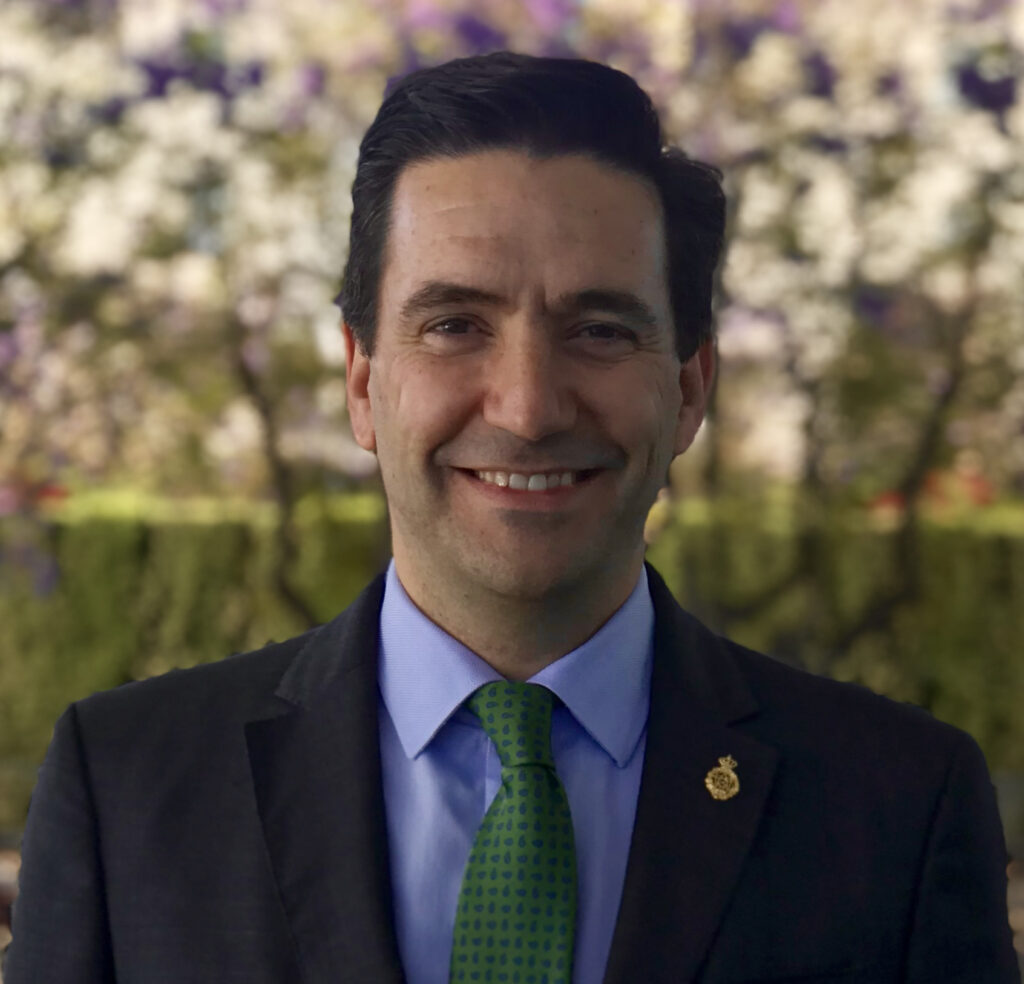
Today, March 4, is World Engineering Day for Sustainable Development. A day in which we celebrate the contribution of engineers to achieve the Sustainable Development Goals (SDG) set by the UN. In this context, we have interviewed the dean of the Official College of Telecommunications Engineers of Western Andalusia and Ceuta (COITAOC), David Cruz-Guzmán Alcalá on the role of the Telecommunications engineer in today’s world, as well as his role in achieving the SDG.
What do you think is the role of Telecommunications Engineers in meeting the UN Sustainable Development Goals (SDGs)?
Telecommunications and the set of digital enabling technologies are a key piece for the development of society and fundamental for social and territorial cohesion. From this point of view, the Telecommunications Engineer has become a professional committed to each and every one of the 17 Sustainable Development Goals of the 2030 Agenda in its many facets: design of telecommunications infrastructures and services and, of course, use of the same for the achievement of the SDGs linked to quality employment, the universalization of digital education and training, health and the social function of technologies towards the well-being of citizens.
What contributions in the field of telecommunications are being made in this regard?
The application of telecommunications in each and every one of the SDGs is being fundamental. We are going through a serious pandemic (COVID-19) and thanks to telecommunications, Information and Communication Technologies (ICT) we have been able to continue maintaining activities in education, health care, teleworking, etc.
The potential of our telecommunications networks and services has been demonstrated. This reality that telecommunications have achieved is what we must extend to the achievement of each of the SDGs. Digital Enabling Technologies and the new 5G mobile and fiber optic infrastructure networks will make a decisive contribution in the coming years to achieving the 2030 Agenda that the UN has outlined.
What challenges lie ahead? Regarding the use of technology, climate change, the energy transition…
In all the challenges that lie ahead, as a result of the commitment of countries and people to the Sustainable Development Goals, the application of Digital Enabling Technologies, supported by high levels of connectivity and broadband, will be the basic support to successfully tackle the energy transition, climate change and the 17 SDGs. We must not forget that all citizens must be involved and for this we must have the necessary digital training.
Do you think that Spain need more engineers? If so, in which discipline are they most needed?
In Spain, as in the rest of the European Union, it is critical to promote technological vocations in the early stages of training, especially among girls and women. In a society like the current one, so marked by technology, in a digital transformation process underway at the level of the administration itself, companies, SMEs, the self-employed and citizens in general, there is no doubt that engineers and engineers closely related to the areas of Information and Communication Technologies who are capable of making ICT and Digital Enabling Technologies available to society. Telecommunications Engineers are clearly needed.
How has the role of the Telecommunications Engineer evolved in recent years? Is the line between different engineering tending to blur?
I start by answering the second question. Within the eight regulated engineering professions, encompassed in nine Professional Associations of Engineers associated with the Professional Union of Engineering Associations (UPCI), the professional profiles of each engineer are clearly differentiated (Industrial, Telecommunications, Naval, Aeronautical, ICAI, Civil , Forestry, Mines and Agronomists). But it is true that ICTs have been introduced in all branches of engineering, making the Telecommunications Engineer a necessary professional.
Regarding the role that the Telecommunications Engineer has been playing, we see that it is the one that has allowed to start up the level of deployment of telecommunications networks and infrastructures (optical fiber, mobile telephony), which today has allowed Spain to reach a very high level of broadband connectivity at a European level, according to the DESI Reports.
This profile of designer of telecommunications networks and services provided by infrastructures has been expanding its spectrum to include the necessary skills that are outlined by Digital Enabling Technologies (IoT, Bigdata, blockchain…) in a process large-scale digital transformation. All of this has also made Telecommunications Engineers necessary professionals for digital transformation.






